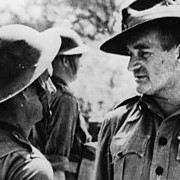Standing on the digital bonnet
We are delighted to publish Julian Wathen’s recent article. He looks at how and why leaders need to adapt their leadership style to operate effectively when they are remote from the teams they lead and the business environment is fast-changing.
Leading dispersed teams isn’t new, and the principles of leadership endure. What’s changed is the number of teams now expected to operate remotely from an office environment, combined with, in many cases, a faster-changing and more uncertain business environment than many have previously experienced. The pandemic has forced leaders and teams to adapt quickly to stay effective.
Julian draws on two excellent historic examples of remote leaders and his own deep experience as a senior military officer and operations director in a leading service company to outline five leadership qualities that are enduring and how they should be adapted to lead effectively in a remote setting.
Key takeaways:
1. You need a clear ‘intent’ to guide remote teams.
Intent provides guidance by setting out the context, desired outcome, and specific objectives for any given project (in effect a statement for what success looks like and why it’s important). Having shared awareness of the situation and what needs to be achieved is key to enabling people to use their initiative when dispersed from leaders and their peers.
2. Leader visibility is always important.
Bill Slim used to stand on the bonnet of his jeep to address the troops. Thankfully, it’s easier to stay connected with the digital technology we now have available. But it only works if leaders invest time to use it and create the opportunities to be visible, accessible, and clear about their intent in both formal and informal settings.
3. The leader is there to serve their team.
It’s not the other way around. This enduring facet of leadership requires leaders to put their teams ahead of their individual interests and ego. In a remote environment, successful leaders go the extra mile to recognize the efforts people are making, respect and trust their judgement. They ask, ‘what can I do to help you to be successful?’
4. Great leaders build team morale even in the direst circumstances.
As Julian points out, morale is a state of mind. It relies on an underlying belief that the individual is doing something valuable, is valued, and has the willingness and means to succeed.
5. Teams need to be empowered.
We share Julian’s view that empowerment isn’t well understood or consistently applied. In remote teams when things are changing fast, it simply isn’t possible to direct actions in detail. There is no role for a ‘know everything, tell everything’ leader. If you want people to use their initiative, they must be empowered. The clue is right there in the word: they must be given freedom – the power – and encouragement to make decisions, act on their initiative and do the right thing. Occasionally they will fail, but it’s an important part of the learning process that helps replace one mindset with another.
Conclusion
Julian concludes by reminding us that some of history’s greatest leaders have overcome huge challenges to their organizations by staying connected with the people they lead, giving a strong sense of purpose to their organization, raising morale, and creating the desire to prevail over difficult circumstances. Julian highlights throughout the article the utility of a leadership framework like Leading through Intent (referred to in the military as Mission Command) to clarify the leader’s intent and empower people to achieve it.
About Julian
Julian is an Associate Director of Leading Change. He brings extensive commercial, central government, public sector, and military experience at director and board level. He is an expert on strategy formulation and execution with significant commercial experience leading large complex service bids, mobilization and delivery of operational excellence programmes.
Click here for Julian’s details
More about Field Marshal Bill Slim
In the excellent Radio 4 show Great Lives, General Sir Mike Jackson, former head of the British Army, discusses Field Marshal Bill Slim, leader of the Burma Campaign. Military historian Julian Thompson lends weight to the argument that Slim, less well known today than other World War II generals, was perhaps the greatest military commander of the 20th century.
